Yuezhi Civilization: Ancient Nomadic People Who Once Ruled Bactria
Ellen Lloyd - AncientPages.com - The first mention of the Yuezhi civilization can be found in ancient Chinese sources from the 2nd century B.C.
They are describes as nomadic people living in the western part of Gansu province, northwestern China. Known by a Chinese name (“Meat Eaters,” a Chinese appellation), the Yuezhi was one of the numerous Iranian or Aryan nomadic tribes.
The Yuezhi - first mentioned in ancient Chinese sources at the beginning of the 2nd century B.C are generally believed to have spoken a language related to Tocharian, of the Indo- European family, and to have been ethnically Caucasoid.
Before being driven out by the Xiongnu, a powerful people of North China, the Yuezhi dominated the northern steppes, still searching for new territories. Finally they moved westward into Sogdiana and Bactria, where they put an end to Greek rule in both regions.
Ancient Bactria was located between the Hindu Kush mountain range and the Amu Darya river, covering the flat region that we today recognize as modern-day Afghanistan and Tajikistan. Bactria was the birthplace of Zoroastrianism, and later also hosted Buddhism before becoming Muslim.
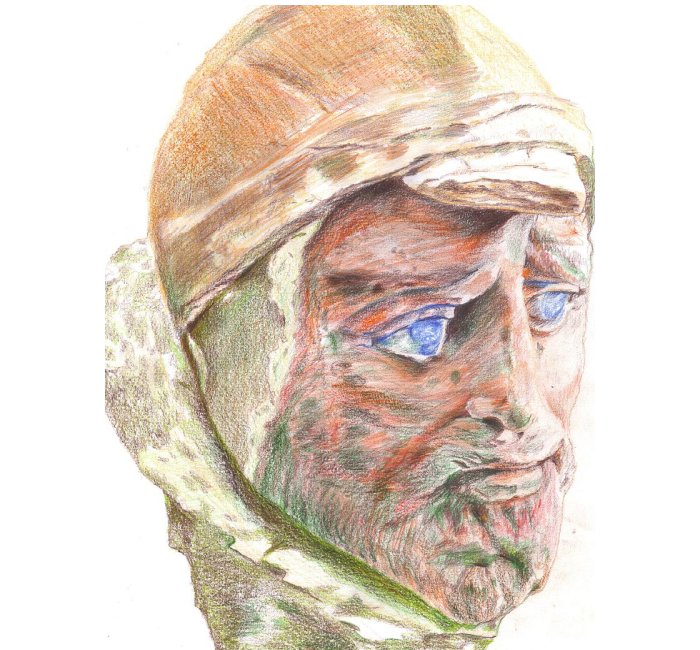
Bust of a man, found at from Khalchayan, a major site of the Yuezhi (later Kushan) people, in Bactria (modern Surxondaryo Province, Uzbekistan). Painted clay.Image credit Wikipedia
The Yuezhi were involved in many conflicts. They fought the Tocharians, Scythians, and even the Han Empire in Central Asia.
When the Yuezhi entered Bactria, they defeated the Greco-Bactrian kingdom, forcing them to regroup in India. They also displaced a people called the Saka, who responded by overrunning portions of the Parthian Empire.
Tribes of Scythians and Saka eventually established themselves all over Afghanistan.
See also:
Lost Ancient Greco-Bactrian Kingdom Of 1,000 Cities
Mysterious Disappearance Of Scythians Remains Unsolved
Ancient Great City Of Napata In The Kingdom Of Kush
In time, the Yuezhi consolidated and established an agricultural economy. A new dynasty, known as the Kushan, was subsequently founded by one of the five chieftains among whom Bactria was divided. The Kushan kingdom was powerful and extended its power and their territories southward, eastward into India, and northward into Central Asia.
The Kushans managed to survive for three centuries, until forces from Persia, Pakistan, and India all re-conquered their old territories. In consequence, the Kushan Kingdom's power declined.
Missionaries from the Great Yuezhi played an important part in spreading and promoting of Buddhism in China. The spread of Indian culture into the territories of Central Asia reaching the borders of China probably resulted from Kushan influence.
Written by - Ellen Lloyd – AncientPages.com
Copyright © AncientPages.com All rights reserved. This material may not be published, broadcast, rewritten or redistributed in whole or part without the express written permission of AncientPages.com
More From Ancient Pages
-
 Babylonians And Sumerians Had Advanced Knowledge Of Astronomy
Civilizations | Feb 28, 2017
Babylonians And Sumerians Had Advanced Knowledge Of Astronomy
Civilizations | Feb 28, 2017 -
 Who Was Pseudo-Nero?
Ancient History Facts | Apr 25, 2016
Who Was Pseudo-Nero?
Ancient History Facts | Apr 25, 2016 -
 Nude Athletes And Fights To The Death: What Really Happened At The Ancient Olympics
Featured Stories | Aug 2, 2024
Nude Athletes And Fights To The Death: What Really Happened At The Ancient Olympics
Featured Stories | Aug 2, 2024 -
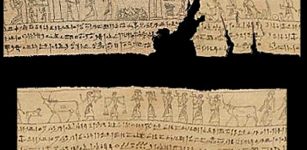 300 BC Mummy Shroud Fragment In NZ Finds Match In US
Archaeology | Jul 18, 2021
300 BC Mummy Shroud Fragment In NZ Finds Match In US
Archaeology | Jul 18, 2021 -
 Mysterious Ancient Village In A Prehistoric Anomalous Zone – Dangerous Underground Secret – Part 2
Ancient Mysteries | Jul 28, 2020
Mysterious Ancient Village In A Prehistoric Anomalous Zone – Dangerous Underground Secret – Part 2
Ancient Mysteries | Jul 28, 2020 -
 Pregnant Woman’s Remains With An 8-Month Fetus Unearthed At Ancient Taosibei Cemetery, Shanxi, China
Archaeology | Jun 13, 2022
Pregnant Woman’s Remains With An 8-Month Fetus Unearthed At Ancient Taosibei Cemetery, Shanxi, China
Archaeology | Jun 13, 2022 -
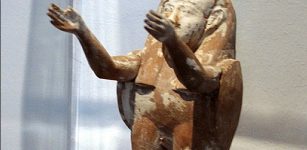 Ancient Beliefs About The Soul
Civilizations | Mar 8, 2016
Ancient Beliefs About The Soul
Civilizations | Mar 8, 2016 -
 Megadrought That ‘Killed’ Green Sahara 4,000 Years Ago Crippled Southeast Asia’s Human Settlements
News | Aug 26, 2020
Megadrought That ‘Killed’ Green Sahara 4,000 Years Ago Crippled Southeast Asia’s Human Settlements
News | Aug 26, 2020 -
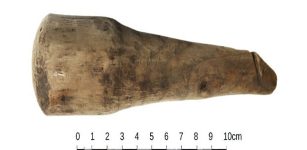 Unique Roman Artifact Discovered At Vindolanda Was More Than A Good Luck Charm
Archaeology | Feb 20, 2023
Unique Roman Artifact Discovered At Vindolanda Was More Than A Good Luck Charm
Archaeology | Feb 20, 2023 -
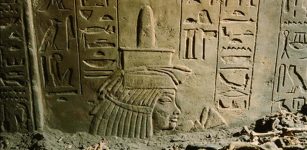 Tomb Of Maia, Tutankhamun’s Wet Nurse In Egypt’s Saqqara Opens To Public
Archaeology | Dec 22, 2015
Tomb Of Maia, Tutankhamun’s Wet Nurse In Egypt’s Saqqara Opens To Public
Archaeology | Dec 22, 2015 -
 Remarkable Neanderthal Flute Found In Divje Babe Cave Is The World’s Oldest Musical Instrument
Artifacts | Dec 11, 2023
Remarkable Neanderthal Flute Found In Divje Babe Cave Is The World’s Oldest Musical Instrument
Artifacts | Dec 11, 2023 -
 Evidence Of An Unknown Ancient Civilization In The Yucatan?
Featured Stories | Apr 6, 2024
Evidence Of An Unknown Ancient Civilization In The Yucatan?
Featured Stories | Apr 6, 2024 -
 Mysterious Ancient Tomb And A Strange Vanishing In France – DNA Failed To Solve The Riddle?
Featured Stories | Feb 20, 2024
Mysterious Ancient Tomb And A Strange Vanishing In France – DNA Failed To Solve The Riddle?
Featured Stories | Feb 20, 2024 -
 Teutonic Knights – Facts And History About The Christian Military Order
Featured Stories | Feb 21, 2019
Teutonic Knights – Facts And History About The Christian Military Order
Featured Stories | Feb 21, 2019 -
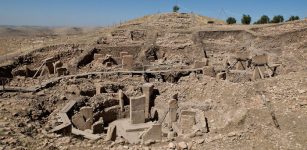 This Is The Mysterious Hilltop Where Civilization Began Scientists Say
Archaeology | Jun 24, 2022
This Is The Mysterious Hilltop Where Civilization Began Scientists Say
Archaeology | Jun 24, 2022 -
 Secrets Of The Cathars – Mysterious Manuscript Of Jesus And His Pre-Flood Language
Featured Stories | Jan 18, 2019
Secrets Of The Cathars – Mysterious Manuscript Of Jesus And His Pre-Flood Language
Featured Stories | Jan 18, 2019 -
 Pre-Columbian Casarabe People In The Amazon Developed A Unique Drainage And Irrigation System
Archaeology | Jan 29, 2025
Pre-Columbian Casarabe People In The Amazon Developed A Unique Drainage And Irrigation System
Archaeology | Jan 29, 2025 -
 The Controversial History Of Moses – Who Was He Really?
Biblical Mysteries | Sep 13, 2015
The Controversial History Of Moses – Who Was He Really?
Biblical Mysteries | Sep 13, 2015 -
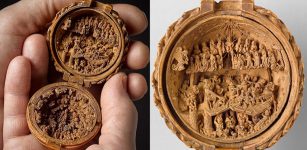 Rare Gothic Boxwood Miniatures – Precious Marvel Of Human Ingenuity
Artifacts | Dec 30, 2019
Rare Gothic Boxwood Miniatures – Precious Marvel Of Human Ingenuity
Artifacts | Dec 30, 2019 -
 On This Day In History: King Alexander II Was Crowned At Scone, Scotland – On Dec 6, 1214
News | Dec 6, 2016
On This Day In History: King Alexander II Was Crowned At Scone, Scotland – On Dec 6, 1214
News | Dec 6, 2016


